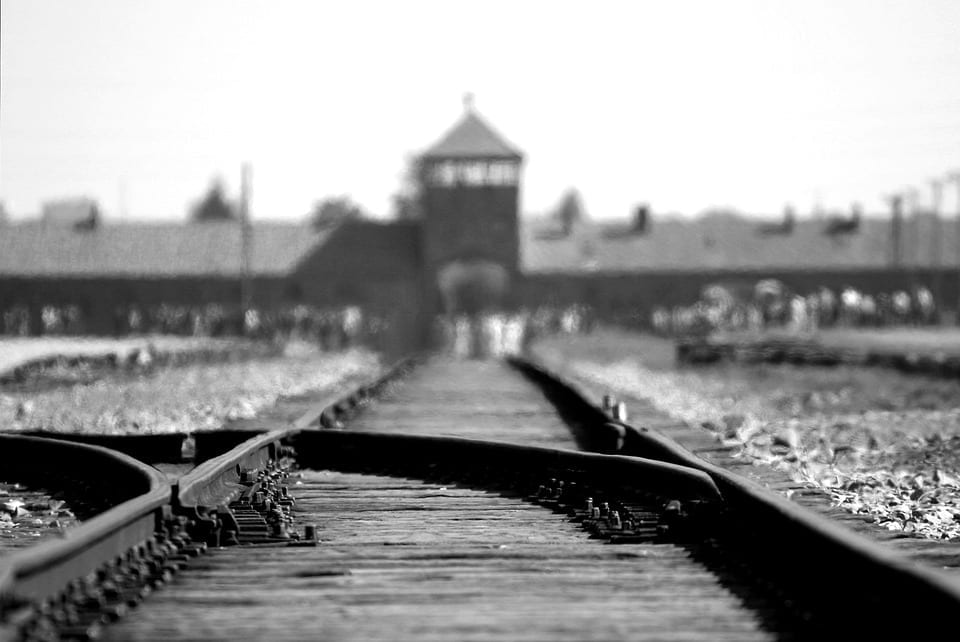by Amber Coombs
L2 undergraduate
Before reading Deborah Lipstadt’s Denial: Holocaust History on Trial, I had not thought it possible that the Holocaust could be denied by historians. Lipstadt’s book is an account of the trial she faced when David Irving, a renowned Second World War historian, sued her for libel against his work. Lipstadt had suggested that Irving was a Holocaust denier who had purposefully misinterpreted evidence on the atrocities committed by the Nazi regime in concentration camps. Irving is a specialist in the military and political aspects of the Second World War, and has claimed that Hitler did not order, and was largely unaware of, the Final Solution plan.
Deborah Lipstadt is a lecturer of Holocaust Studies and Modern Jewish History, as well as the author of multiple successful books, which have focused on the Holocaust and the denial of the event. Lipstadt is renowned throughout America, especially because of her appointment to the United States Holocaust Memorial Council in 1994. When faced with the trial against Irving, Lipstadt enlisted the help of Anthony Julius, well known for being Diana, Princess of Wales’, divorce lawyer. Lipstadt was also backed by colleagues, well-established historians and organisations, which provided her with support in the court room.
Denial: Holocaust History on Trial follows the case of Lipstadt and Irving in a battle over libel. Lipstadt faced an arduous task. She and her legal team had to provide the court with evidence in her defence which included accounts of Irving’s public and private works. As well as following the case between the two historians, the book covers Lipstadt’s career journey, from her university life to travelling to popular Jewish tourist attractions, in order to become the famous Holocaust historian she is today.
This book addresses the events within the case and the extremely lengthy process of collating the evidence used by Lipstadt for her original work against Irving, as well as Irving’s sources and personal diaries. Along with scrutinising the evidence used by both historians, Lipstadt recounts her journey to Auschwitz and Birkenau with her trial barrister, Richard Rampton. The account of their trip to Poland is vivid and includes many details from the layout of the camps to the size of and equipment used within the gassing chambers, bringing the reader back to the reality of the case to provide justice for the victims.
The now well-known case has been made into a film, Denial, directed by Mick Jackson, starring Rachel Weisz as Lipstadt, Tom Wilkinson as Rampton and Timothy Spall as Irving. The film was released on 27 January 2017 and was nominated for Best British Film at the BAFTAs in February. Jackson’s interpretation of the case received a positive reception, gaining 83% on popular film-rating site Rotten Tomatoes and a 4-star rating by The Guardian. Peter Bradshaw, who reviewed the film in The Guardian, states that the film adaptation had ‘clarity, urgency and overwhelming relevance’, highlighting the importance of the trial and its relevance to survivors and their families. Weisz portrays Lipstadt as a determined and driven individual, just as she comes across in her writings, striving for justice for the victims of the Holocaust and their history. Weisz also shows her character’s more vulnerable side, although Lipstadt only briefly touches upon her personal turmoil in the book. Spall adapts to the role of Irving extremely well by openly showing his abhorrent opinions without breaking character once. Certain quotes within the film, namely Irving’s actual words which Lipstadt states in her book, leave the viewer shocked. These include Irving’s claim that more women had died in the back of Senator Ted Kennedy’s car (referring to the death of Mary Jo Kopechne) than in the gassing chambers at Auschwitz. However, it is these hard-hitting scenes in the film, as well as in the book, that remind viewers and readers of the audacity of deniers and of the important role historians are playing in fighting for the truth in countering denier’s claims.

The case still remains important today, showing the seriousness of holocaust deniers’ claims into the events during the war. It is my opinion that young historians, particularly those of school age, are hidden from the idea of the Holocaust being denied, as they are taught in school the facts of what happened and not presented with the idea of holocaust denial. Lipstadt makes the approach to Holocaust denial accessible by stating the claims that Irving makes and then analytically proving that they are false with support from sources used by both Irving and Lipstadt.
I would recommend Lipstadt’s book, Denial: Holocaust History on Trial, for the way it presents the social, political and military history of the Second World War, and for the way it deals with the experiences of Jewish civilians who were forced into concentration camps by the Nazis. Although the outcome of the trial is well known, I will not reveal the court’s rulings just in case you choose to read this compelling, thought-provoking book about the fight for justice.
The film was released on DVD and Blu-Ray on 5 June 2017.